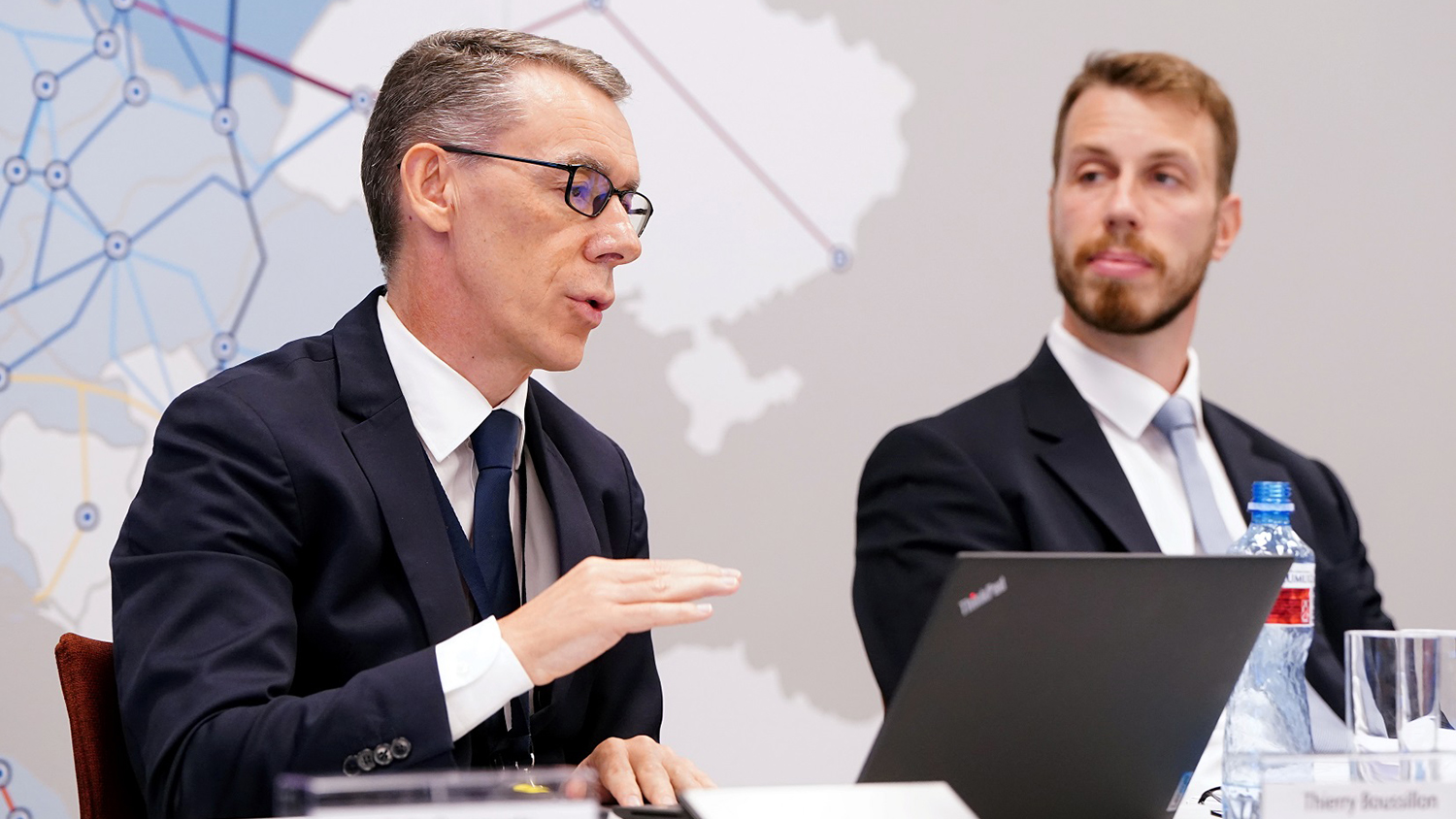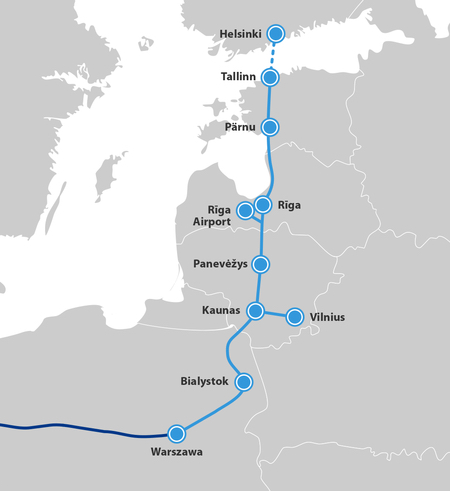
The planned Rail Baltica high-speed rail corridor connecting Estonia, Latvia and Lithuania to Poland and the European rail network could end up costing €19bn more than planned, state auditors in the three countries warned on Wednesday.
That would push the cost of the 870km line to €24.8bn, more than four times the 2017 estimate of €5.8bn.
By country, the extra money needed breaks down as €2.7bn in Estonia, €7.6bn in Latvia, and €8.7bn in Lithuania.
They found that the cost hike could be cut to €10.1bn if the trio of governments followed through with planned scope reductions. These include stations with less functionality and making the line single-track in places.
The auditors calculated the project would not be finished by 2025 as planned, but in 2030, which puts EU funding at risk, the auditors said.
Delays cause funding gap
That’s because the EU’s Connecting Europe Facility (CEF) had agreed to provide up to 85% of the scheme’s cost, but the current EU funding period ends in 2027, which marks the end of the countries’ eligibility period for CEF funding.
That leaves a two-year funding gap over 2027 and 2028, because the next multi-year financial framework will be set in 2028, and grants are not normally awarded in the first year of a new framework, the auditors said.
Those years would be the projects’ most intensive construction period, so alternative funding would have to be found, they added.
Trains and project management
The procurement of trains could cause an even longer delay.
The auditors calculated it could take eight years to get the trains, and the process hasn’t started yet.

Furthermore, trains are not included in the €19bn figure, and cannot be financed with EU money.
In another finding, the auditors said the countries have yet to take the organisational steps needed to make the line work when it’s finished.
“There is no decision setting out the roles, responsibilities and principles of governance of the railway, including how profits and losses will be shared, conflicts will be resolved, etc,” they said.
Finally, the auditors criticised the project’s weak approach to coordinated risk and change management.
They said a 2019 audit identified the need for “a risk management system that would tie the whole project into one”, but that there has been no improvement since then.
Baltica’s own latest costing
Rail Baltica delivery company RB Rail published its own updated cost-benefit analysis on Monday, two days before the auditors’ report.
Like the auditors’ report, it concluded that 2030 was the earliest possible completion point.
But it calculated a lower final cost of €15.3bn, which it put down to inflation in the three countries since 2017 (40%), contingencies and design advancement (30%), scope increases (19%), and “additional external requirements” (11%).
Focusing on the benefits, it said the line would be economically viable, and would add up to €23.5bn to the three countries’ combined GDP, plus a further €6.6bn in “direct net benefits”.
Responding to the auditors
Responding to the auditors’ report on Wednesday, RB Rail issued a statement that more than doubled the scheme’s expected “direct and induced” economic benefits to €48bn for the Baltic states.
The response added another rationale for the scheme: military mobility in light of Russia’s invasion of Ukraine.
“Rail Baltica, traditionally discussed in terms of passenger and freight transport, is now recognised as crucial for military mobility on NATO’s eastern flank,” RB Rail said.
On project financing, it said: “The project actively seeks diverse financial resources, including private investment and loans, contingent upon the next EU budget.”
On project and risk management, it said that “further development of unified change and risk management for the global project is of the highest importance”.
Political reaction
In response to the auditors’ report, Lithuanian transport minister Marius Skuodis blamed RB Rail for the slow pace of construction, and called on Lithuanian Railways to identify those responsible for the delays in his country, Lithuanian news site LRT reports.
“Once and for all, we have to stop talking and covering for each other,” he said.
“Even the State Audit Office fails to indicate clearly who is responsible. The responsibility lies with the Baltic joint venture, which has not provided us with projects for two years.
“If the LTG [Lithuanian Railways], its management board, doesn’t take responsibility to find those at fault and make them answer, the Transport Ministry will. I’m also talking about people who are no longer in their positions – they shouldn’t feel safe,” he added.
The minister also criticised Latvia and Estonia for what he described as smaller-scale construction efforts compared with Lithuania, noting that the countries prioritised building stations over tracks.
RB Rail says that in Lithuania, the construction of 29km of the mainline is underway, with plans to extend the construction to a 70km section by the end of the year.
Estonia has started the construction of 21km of the mainline and Latvia is planning to start building the first 13km in the coming months.
Subscribe here to get stories about construction around the world in your inbox three times a week.
Further reading
Comments
Comments are closed.











For any organisation to achieve their aims, goals and objectives the organisation must work in collaborative approach. A Joint effort must be the back bone. Working in isolation, lack of efficient and effective communication will topple the organisation. Then our goals will not be met. Any set back or delays which last for years will inflate the project cost even further, so conscious and realistic decision must be made from the very first day, “can we achieve” “will we as a team deliver” “do we give the finances and if a member of the team ops out during the completion for whatever reason how will the remaining team complete the project. Team work is essential and members must be honest with each other.